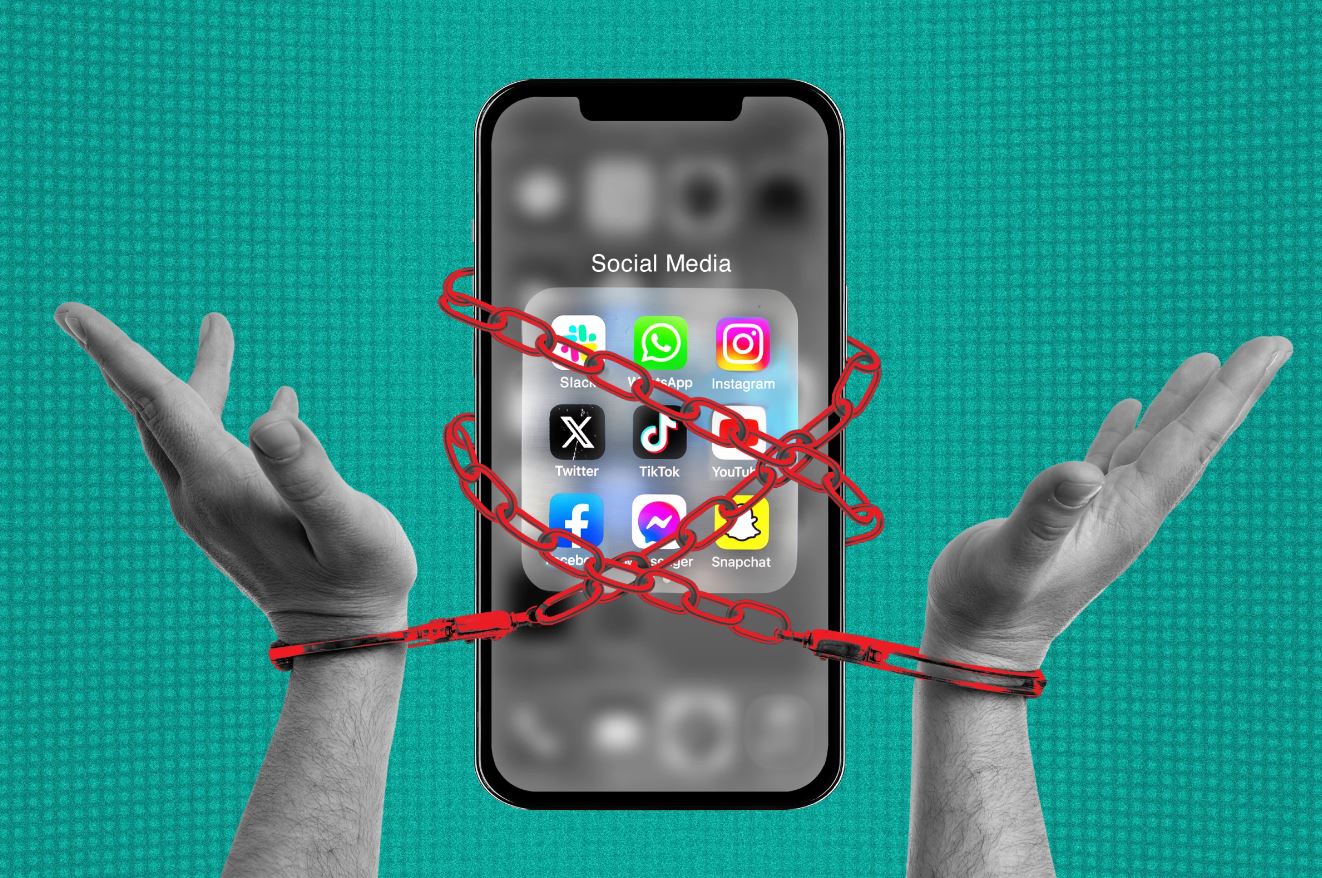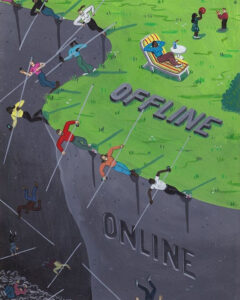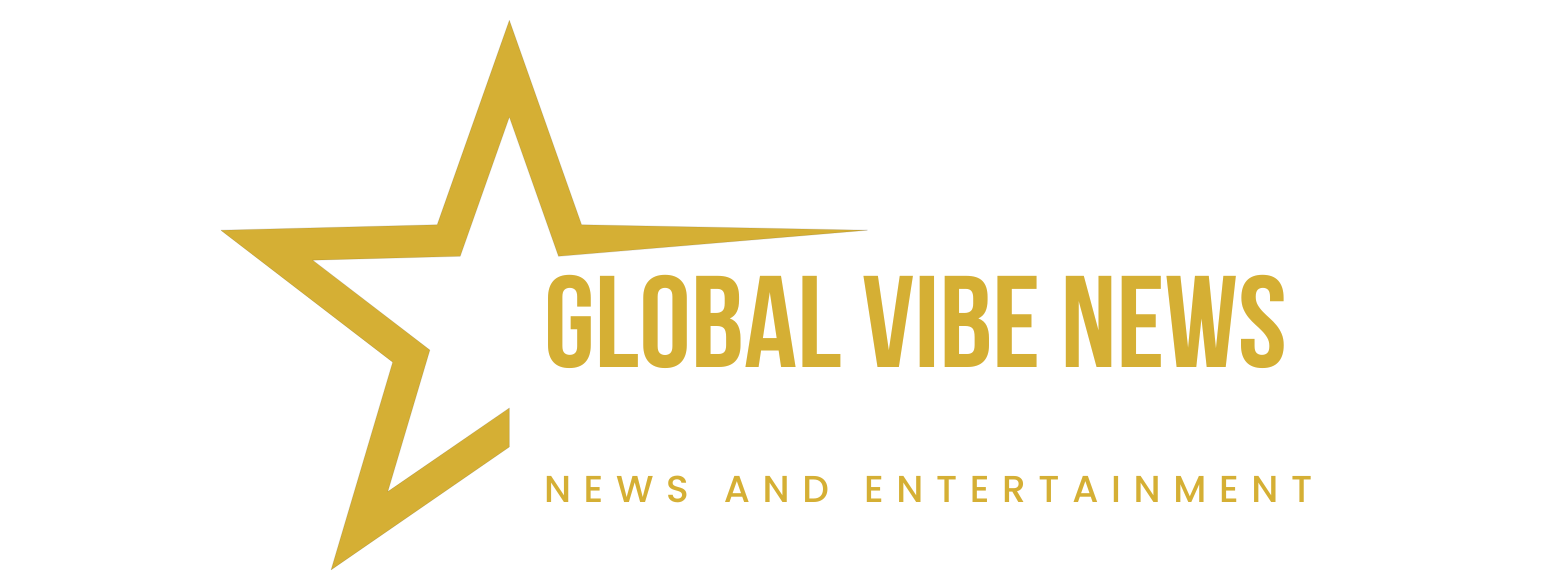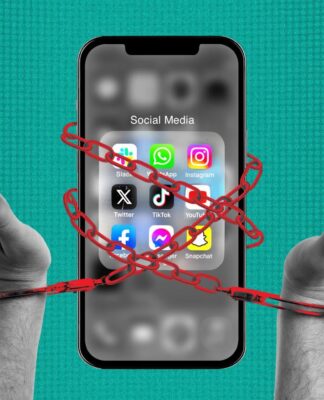The Dark Side of social media: How Addiction is Stealing Our Time, Mental Health, and Reality
In today’s hyper-connected world, social media has become an integral part of our daily lives. Platforms like Facebook, Instagram, Twitter, and TikTok have revolutionized the way we communicate, share information, and interact with the world. Yet, while social media has opened up new avenues of connectivity, creativity, and business, it also casts a shadow over mental health, productivity, and personal security. Social media is a double-edged sword, offering as much harm as it does good, and the statistics speak for themselves.
The Power and Perils of Social Media
On one side, social media enables global connections, allowing people to stay in touch with friends and family across continents, share ideas instantly, and build digital communities around shared interests. In business, companies harness these platforms for marketing, branding, and customer engagement, reaching audiences that traditional media struggles to connect with.
However, the dark side of social media has become increasingly evident. Its addictive nature has led to a staggering rise in anxiety, depression, and fear of missing out.
Globally, a report by statista.com shows that as of July 2024, over 5.45 billion people are using social media. While this offers a staggering potential for interaction, it also highlights the scale of addiction and its negative impact.
The Illusion of Productivity and Real-World Consequences
For many, social media isn’t just a distraction, it’s an addiction that directly impacts productivity. The constant stream of notifications pulls employees away from tasks, lowering concentration and performance. According to a report by CareerBuilder, 55% of employers said social media is the biggest productivity killer in the workplace. Scrolling through feeds during work hours has become so common that it has directly contributed to reduced efficiency and focus, creating a significant loss of productive time.
Furthermore, the average internet user spends 2 hours and 31 minutes daily on social media, time that could otherwise be spent on more productive activities. When broken down, this equates to more than 38 days per year lost to scrolling and liking, with many users unaware of just how much time they sacrifice to these platforms.
The Trap of Fake Lives and Digital Envy
Social media is often seen as a highlight reel, where users showcase the best moments of their lives, carefully curated to project happiness, success, and beauty. However, this idealized portrayal can lead to a distorted view of reality. The constant barrage of edited photos, luxury lifestyles, and celebratory posts causes many to feel inadequate by comparison.
A 2017 study from the Royal Society for Public Health revealed that social media platforms like Instagram and Snapchat are particularly damaging to mental health, especially among young people. The study found that 70% of respondents felt that these platforms heightened their feelings of inadequacy, while 67% said they felt worse about their body image after using social media. The pressure to maintain an online image creates a cycle of comparison and envy, leading to issues like anxiety, depression, and low self-esteem.
Scammers and Cyberbullying: The Darker Side of the Web
In addition to the emotional toll, social media has become fertile ground for scammers and cybercriminals. Cybercriminals exploit the trust built on these platforms to execute phishing scams, identity theft, and fraud. The FBI’s 2023 Internet Crime Report revealed that social media fraud cost victims in the U.S. more than $12.5 billion in 2022 alone, and these numbers continue to rise.
Cyberbullying is another pervasive issue. According to Cyberbullying Research Center, about 37% of young people between the ages of 12 and 17 have been bullied online, and 30% have had recurring experiences. The anonymity of social media platforms makes it easy for bullies to harass and intimidate, causing real emotional harm. Victims often suffer in silence, with many experiencing depressions, anxiety and in extreme cases, suicidal thoughts.
The Psychological Cost of Social Media Addiction
The addictive nature of social media, driven by algorithms that keep users engaged through Followers, likes, shares, and comments, has been shown to have a significant psychological impact. The constant need for validation, combined with the dopamine hit users receive from engagement, leads to compulsive behavior. This has sparked a rise in social media addiction, where individuals feel a compulsive need to check their accounts even when they know it’s detrimental.
According to the Global Digital Overview 2023, 44% of global internet users admitted that they find it difficult to unplug from social media, while 39% said they feel overwhelmed by the constant flow of information. This addiction has wide-reaching effects, from worsening mental health to straining personal relationships.

Paradise on Earth: The Benefits of Being Offline
While the dangers of being constantly connected are numerous, there is growing awareness of the benefits of unplugging from the digital world. Offline, people report feeling more connected to the present moment, enjoying deeper relationships, and experiencing less stress. Taking a step back from social media allows individuals to refocus their time and energy on real-life goals, hobbies, and meaningful connections.
In fact, those who practice digital detoxes, even for short periods, often report increased productivity, better sleep, and a renewed sense of calm. A report from the American Psychological Association found that 60% of Americans who took a break from social media felt significantly less stressed, with many saying it improved their overall well-being.

Conclusion: Striking a Balance
Social media, as a double-edged sword, offers immense power to connect, learn, and grow, but it also comes with significant risks that cannot be ignored. From reduced productivity and cyberbullying to fake lives and addiction, the consequences of unchecked social media use are both personal and societal.
The key to thriving in the digital age lies in moderation. By striking a balance between being online and offline, people can reclaim their time, protect their mental health, and build genuine connections that transcend the superficiality of the digital world. Those who successfully navigate this balance may find that the offline world truly is a paradise on earth.



